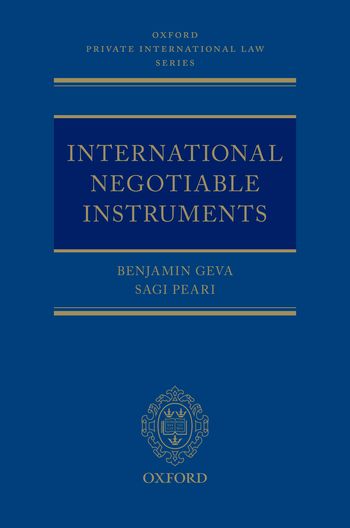We are now closed for the Christmas and New Year period, returning on Monday 5th January 2026. Orders placed during this time will be processed upon our return on 5th January.

For centuries, bills of exchange, cheques, and promissory notes ('negotiable instruments') have played a vital role in the smooth operation of domestic and international commerce. The payment mechanisms have been subject to rapid technological progress and law and procedure have needed to adapt and respond to ensure that the legal framework remains relevant and effective.
This book provides a comprehensive and thorough analysis of the treatment of negotiable instruments, grounded in instruments used in international trade, and the key differences across the major legal systems and sets this in the overarching framework of choice of law rules applicable to international negotiable instruments.
The authors analyse the extent to which negotiable instruments are consistent with, or excluded from, the scope of general contract and property law doctrines, and the consequences for the application of private international law instruments and choice of law analysis. The structure of the work provides a systematic inquiry into the relevant principles of law, statutes, and international conventions, and analyses the underlying drivers and rationale for both choice of law and the established law and practice for negotiable instruments. It aims to identify and resolve some of the existing uncertainties in the case law and literature of international negotiable instruments law.